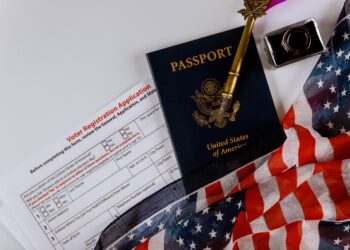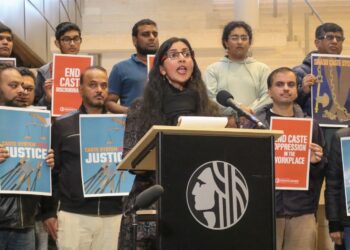Australia updated its travel advisory for people planning a trip to India on December 24 and advised them to proceed with a high degree of caution. According to the advisory, “With the rise in new COVID-19 cases globally, Indian authorities have commenced random checking of international passengers on arrival.”
Additional COVID-19 limitations, such as localised lockdowns and curfews, may be introduced suddenly. The most recent information from the Australian government follows changes to travel regulations in India.
India has been mentioned as “Level 2: Exercise a high degree of caution” in the travel advisory. Under this level, the advisory stated to pay close attention to your personal security and the current health situation. Monitor the media for new and existing risks.
The advisory said, “At level 2, there are more or higher risks than what you would typically find in a large Australian city. We’re not saying ‘don’t go’ to this location. But you should do your research and take extra precautions.”
“The level may reflect a weak law-and-order system, where violent crime is common. The destination may lack some key public services, such as a responsive police force. In some cases, there may be a risk that the security environment could change with little warning. This level may also reflect a passing event, such as political unrest or a short-term increase in a location’s domestic terrorism level,” it added.
“Authorities may implement measures to manage COVID-19 outbreaks, which could affect your ability to move freely, including in and out of the country. Ensure that you have sufficient resources to support yourself overseas. See our Global COVID-19 Health Advisory for more information,” the advisory remarked.
The advisory also warned, to not travel to the Union Territory of Jammu and Kashmir; and the India-Pakistan border due to the danger of armed clashes, terrorist activities and violent demonstrations.
However, this doesn’t apply to the Union Territory of Ladakh, which was established as its own union territory of India in October 2019, separate from the Union Territory of Jammu and Kashmir.
It advised reconsidering your need to travel to the Northeastern states of Assam (except Guwahati), Nagaland and Manipur, Chhattisgarh, and the border areas of the neighbouring state due to the high risk of violence.
Australia’s travel notice advised travellers to follow local media for developments and remarked, “You no longer need to complete the Air Suvidha self-declaration to enter India. Travel and entry requirements can change at short notice.”
The advisory said, “Check with your airline, tour operator, and the Indian Ministry of Health and Family Welfare or the nearest Indian high commission or consulate for the latest information.”
“Domestic flights, rail, and bus services are operating subject to local COVID-19 protocols. Restrictions on travel and business operations may be imposed at short notice,” it further added.
The health advisory said, “Despite increasing vaccination numbers, countries, and territories continue to experience sudden disease outbreaks. New variants may pose an added risk. If you’re considering travelling overseas, you must understand the risks of contracting COVID-19 in your destination and the financial implications this may have on you, and those travelling with you. Know what to do if you test positive while travelling.”
The Indian government stated last week that it is preferable for all visitors to be completely vaccinated in accordance with their country’s primary vaccination schedule against COVID. In accordance with the new regulations, 2% of a flight’s total passengers would also be subjected to random post-arrival testing when they arrive in India.
At the same time, the Indian government has made the RT-PCR test necessary for visitors from China, Japan, South Korea, Hong Kong, and Thailand. International travellers departing from these four nations must also complete an Air Suvidha form to certify their current state of health.











